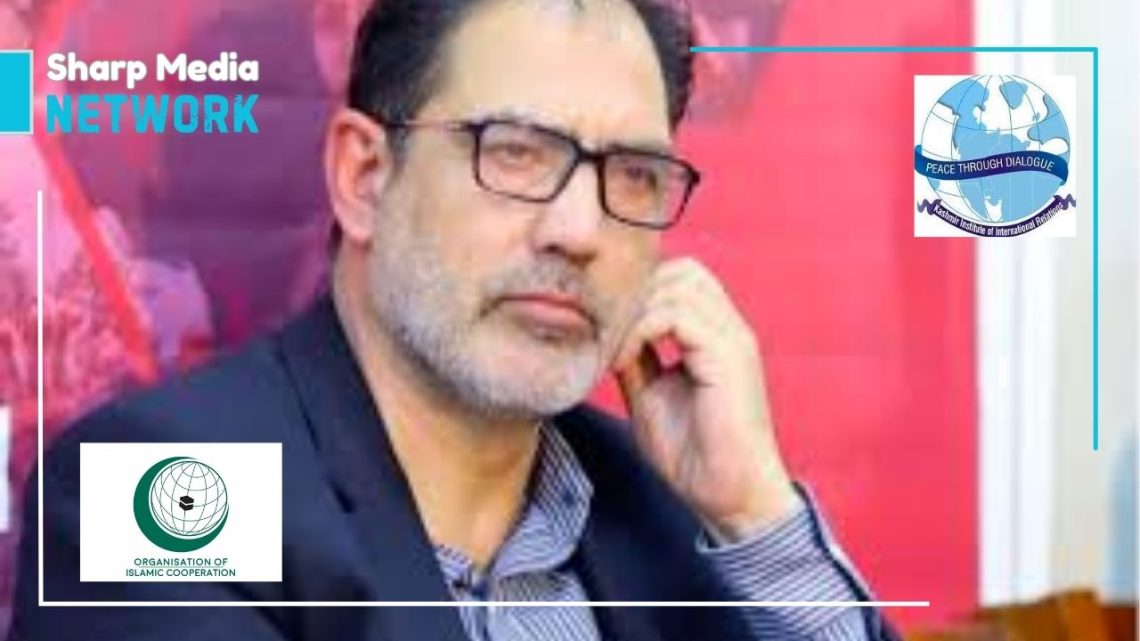
Altaf Hussain Wani Urges OIC to Intervene IIOJK-Threatening India’s Waqf Amendment Bill
February 14, 2025As the Indian government introduces the controversial Waqf (Amendment) Bill, 2024, concerns grow over its potential impact on the Muslim community, particularly in Kashmir.
Altaf Hussain Wani, Chairman of the Kashmir Institute of International Relations (KIIR), has expressed deep concerns regarding India’s newly proposed Waqf (Amendment) Bill, 2024, urging the Organization of Islamic Cooperation (OIC) to intervene. In a letter to Hissein Brahim Taha, Secretary-General of the OIC, Wani highlighted the potential consequences of the Bill on the autonomy of waqf properties, which are vital for maintaining religious institutions and social services, especially in Indian Illegally Occupied Jammu and Kashmir (IIOJK).
The Waqf Amendment Bill, introduced in the Lok Sabha (Indian Parliament) in August 2024, poses a direct threat to the independence of waqf management, Wani argued. Waqf properties play a crucial role in funding mosques, schools, and other essential services for the Muslim community. However, under the proposed amendments, key responsibilities—such as determining waqf properties, addressing encroachments, and registering lands—would be transferred from State Waqf Boards to tax officials. This move, Wani cautioned, risks bureaucratic interference and erodes the governance structure of waqf institutions.
The Bill’s provisions also raise concerns regarding the representation of the Muslim community. It permits non-Muslims to serve on Waqf Boards, but restricts them from creating or donating to waqfs. This contradictory stance could marginalize Muslims in decision-making processes, creating an imbalance in governance that further exacerbates tensions, particularly in sensitive regions like Kashmir.
One of the primary issues with the Bill is its potential to undermine waqf institutions’ historical autonomy. Wani pointed out that the Bill imposes an unrealistic timeline for digitizing waqf records, with only 42% of properties digitized so far. Section 3(B)(1) of the Bill, which mandates complete digitization within six months, could jeopardize legitimate waqf claims and erase vital historical records. Furthermore, the Bill’s deletion of key sections like 107 and 108 would strip waqfs of essential protections, including the Limitation Act of 1963 and legal exemptions for waqf properties.
Wani also criticized the misleading claim that waqf properties are the third-largest property holders in India, emphasizing that Hindu religious institutions in regions like Tamil Nadu, Andhra Pradesh, and Telangana hold far more land than waqfs. He argued that by centralizing the governance of waqfs, the Bill creates an unfair legal disparity, as Hindu endowments remain under state control while waqfs face more stringent national oversight.
The proposed amendments threaten the representation and autonomy of the Muslim community in managing their religious and cultural assets. By altering the composition of Waqf Boards, the Bill risks diminishing Muslim participation in important decision-making processes, potentially leading to policies that do not reflect the community’s interests. This could exacerbate marginalization, further weakening religious freedoms and social cohesion in Kashmir and other regions.
Additionally, the Bill’s complicated legal and procedural requirements may create bureaucratic hurdles, causing disputes among local trustees and community leaders. Given Kashmir’s delicate socio-political environment, any perceived encroachment on waqf properties could heighten communal tensions, worsening the already volatile situation.
In conclusion, Wani called for meaningful engagement with Muslim leaders and urged international advocacy to protect waqf governance and the religious rights of Muslims in India and IIOJK. He stressed that safeguarding waqf governance is vital for preserving harmony, fostering trust, and preventing further disruption in regions marked by historical tensions.

